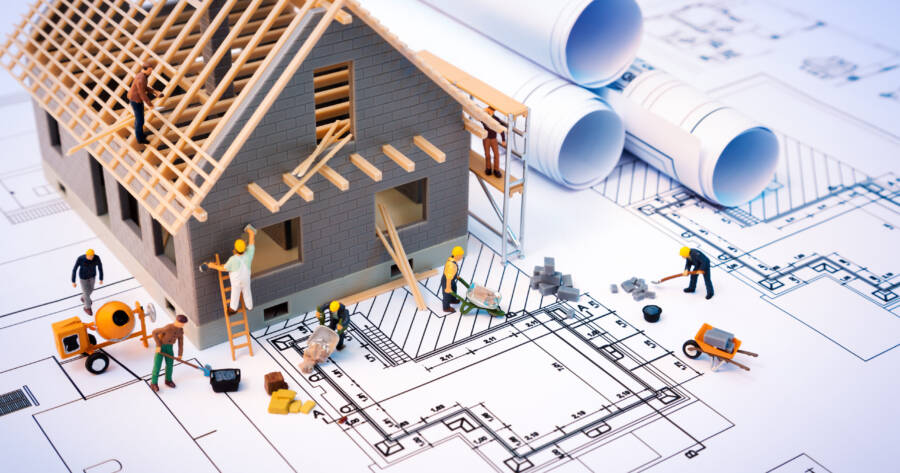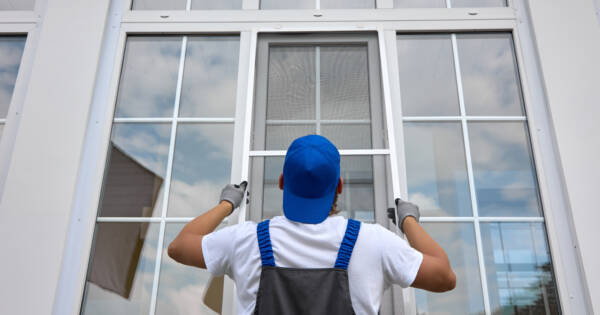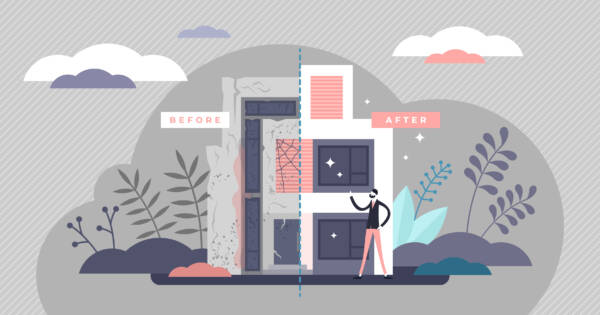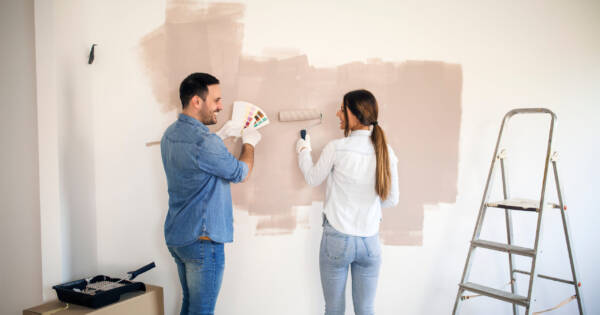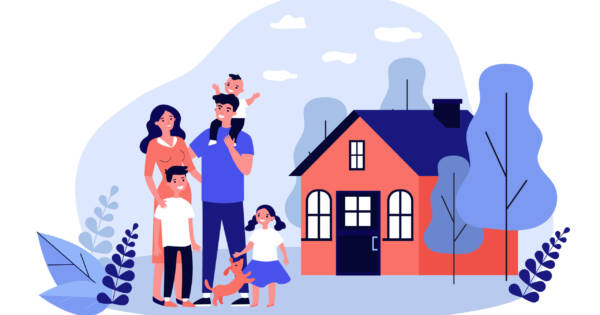Buying a home is the biggest financial commitment most people ever make. It therefore demands careful consideration from every possible angle to know roughly how much it costs to build a house. Yet, many people ‒ and especially first-time buyers ‒ concentrate solely on the prebuilt and resale home markets. Doing so overlooks a potentially advantageous option: building your own home.
Market conditions in 2021 are volatile on both fronts. Home values are rising quickly, but so is the cost of lumber and other commodities used in house construction. As such, each option has its own uncertainties that demand close, comprehensive analysis. This guide examines the major factors you should consider and evaluate when making this all-important decision.
Relative Costs: A General Comparison
On the surface, the costs of buying versus building seem to align at comparable levels. According to the Inspection Support Network, the average cost of a U.S. home hit about $170 per square foot in March 2021. During the previous year, home prices experienced a dramatic spike. Across the one-year period spanning February 2020 and February 2021, they rose by $27 per square foot or about 20%.
Meanwhile, in June 2020, HomeAdvisor placed the average cost of building a house at between $100 and $200 per square foot. However, lumber’s soaring value has since destabilized those estimates. In April 2021, the National Association of Home Builders (NAHB) reported that spiking lumber costs inflated new home prices by about $36,000 over the previous 12 months.
The Takeaway
The respective costs associated with buying resale, prebuilt, and owner-built homes are all rising quickly, but at comparable rates. Experts predict that lumber prices will stabilize and retract in 2022, but this is not a certainty. Resale and prebuilt housing markets could also cool off, but seem less likely to retreat to pre-pandemic levels.
When comparing general costs, look where you plan to live. National data is useful for getting a grip on general trends, but more detailed specifics are best considered on a local level.
Scheduling Considerations
If you are on a rigid or tight schedule, prebuilt homes offer a clear advantage. They are move-in ready, and you will not have to adjust your plans to accommodate unexpected delays and setbacks.
The opposite is true when you build your own home. Reputable construction contractors do their best to stay on schedule, but hindrances happen. The U.S. Census Bureau performs an annual Survey of Construction, which analyzes the length of time it takes for a new residential building to move from start to completion. The 2020 edition reported the following trends for contractor-built single-family homes:
- 9% took three months or less
- 33% took 4-to-6 months
- 27% took 7-to-9 months
- 14% took 10-to-12 months
- 16% took 13 months or longer
The Takeaway
Prebuilt homes offer a distinct advantage to buyers who are on inflexible or tight move-in schedules. You will take possession of the home on the transaction’s closing date, and disruptions to these schedules are extremely rare.
Conversely, building your own home is only recommended if you are not on a tight schedule. The majority of contractor-built homes take 4-9 months to finish, and unexpected delays can add untold lengths of time to original projections.
Customization Potential
With prebuilt homes, buyers face challenges when it comes to customization. It is possible to change things around to suit your tastes, but you may have to hire a contractor if this requires significant upgrades. This takes time and could add tens of thousands of dollars to your costs. Thus, most buyers end up taking their prebuilt home as-is and customizing the space through interior design. Others make changes slowly over time so they can absorb the associated costs bit by bit.
On the flip side, building your own home offers far greater customization latitude. You are limited only by your budget. Even within the confines of tight financial limits, contractors still offer many solutions to create spaces with your preferred layouts and functionalities.
The Takeaway
Prebuilt homes are more difficult to customize. Thus, they generally make a better fit for buyers with flexible spatial and layout expectations.
When you build your own home, you can customize it in endless ways. Contractors can incorporate your preferences at the design stage, ensuring the space renders precisely as you intended and according to any unique needs or preferences you may have.
Going Green
Builders are increasingly conscious of environmental concerns. They tend to choose greener, eco-friendlier and more sustainable building materials when possible. Recently made prebuilt homes are more likely to incorporate such materials. Yet, construction companies are also mindful of how certain choices impact costs, and not all of them prioritize the environment ahead of their profit margins. If sustainability ranks among your major concerns, you will need to be more selective when home-shopping on the prebuilt or resale markets.
When you build your own home, you have far more say and flexibility in the types of materials featured in the house. It is also easier to integrate sustainable features like solar panels, since retrofitting will not be necessary. Yet, remember that costs can rise quickly, as eco-friendly and sustainable building methods tend to carry a higher price tag.
The Takeaway
Older resale homes are much less likely to incorporate sustainable building materials. Some of them may even contain known health hazards, such as lead paint or asbestos.
Newer resale and prebuilt homes are more likely to be greener and healthier. That said, you will enjoy the greatest measure of control over this factor if you build your own home.
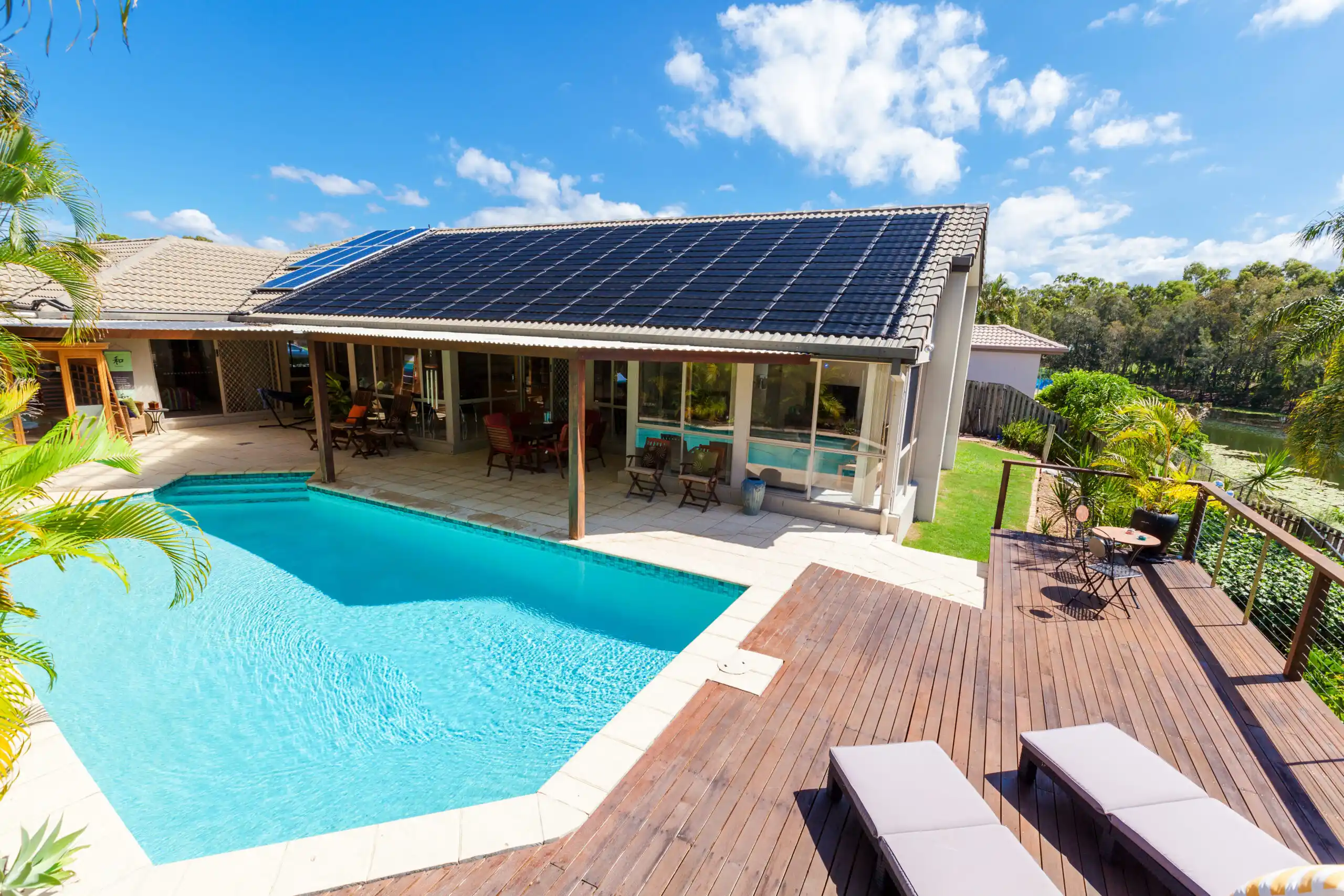 Shutterstock
ShutterstockThe Complexities of Decision-Making
By definition, prebuilt homes demand fewer decisions from the buyer than their built-to-order counterparts. They are constructed from preexisting architectural blueprints. If you purchase the home during a planned development’s pre-sale phase, you may have a certain measure of customization control. However, there is no question that building your own home demands many more decisions of you.
When you build your own home, you will be the one making decisions about interior and exterior materials and finishes, color schemes, and accessories. Some buyers prefer this control, and specifically choose to build their own homes because of it. Others find it complex, time-consuming, and stressful. The right decision in this regard depends heavily on which of those two camps you are in.
The Takeaway
Prebuilt homes have fewer features subject to buyer control, and thus require you to make fewer decisions. Building your own home is just the opposite: you will have to make choices about virtually every interior and exterior characteristic, every step of the way.
If you do not want to take on this level of responsibility, a prebuilt home might be a better option. There’s nothing wrong with simply shopping for something you like, rather than having to design it yourself.
Connecting to the Grid
“Connecting to the grid” means linking the home to municipal systems and services, hooking up electricity, and preparing the house to receive utilities.
When you purchase a prebuilt home, this is all done for you. There is nothing to worry about and there are few if any decisions to be made. On the other hand, most people who build their own homes start out with unimproved lots. This means all applicable connections must be factored into construction plans, and they can carry extra costs.
The Takeaway
Prebuilt and resale homes usually come move-in ready. You may need to replace or upgrade some outdated appliances or home systems, especially if the house is on the older side. However, you will rarely need to make new connections to municipal systems or electrical services.
If you build your own home on raw land, you will need to connect the house to service grids. This can result in extra costs, which many would-be builders overlook when performing initial cost projections.
Pros and Cons of Buying a Prebuilt Home
Relative to building your own home, purchasing a prebuilt house has certain advantages and drawbacks. The following table summarizes the major pros and cons:
Pros of Buying a Prebuilt House
- Prices are usually negotiable, especially if you are dealing with a private seller rather than a builder.
- The home is move-in ready, so you will not have to deal with delays or scheduling disruptions.
- The process is generally easier and less stressful, since there are fewer decisions to make and fewer things can go wrong.
Cons of Buying a Prebuilt House
- You have less control over the layout, color scheme, finishes, features, and accessories.
- Appliances and home systems may be older or in need of repairs or replacement.
- You may have to make trade-offs regarding home features and characteristics, especially if you are home-shopping with a limited budget.
Pros and Cons of Building Your Own Home
Building your own home also offers distinct advantages and disadvantages. The major pros and cons of choosing to construct a custom home include:
Pros of Building Your Own House
- You will be the home’s first owner.
- You will not have to deal with offers from other prospective buyers, eliminating competitive bidding situations.
- There is far greater latitude regarding layout and spatial customization.
- You can choose your own building materials, color schemes, finishes, and accessories.
Cons of Building Your Own House
- Completion schedules can be unpredictable and subject to delays.
- Costs are typically a little higher, and sometimes rise in response to challenges or situations that occur after construction has already begun.
- There is little leeway in terms of negotiating the price.
- Building on raw land requires landscaping and grid connections that can add to costs.
Summing It All Up
The costs of buying or building a home are rising sharply in the post-pandemic landscape. Experts believe the current volatility will stabilize, though there is no consensus about when this could happen or to what extent. Thus, would-be homebuyers or builders should begin by taking a close look at current market conditions in the place where they plan to live.
Prebuilt homes offer several distinct advantages: they are move-in ready, do not require expensive electrical grid or utility connections, and closing dates are fixed and easy to schedule. Building your own home has much greater customization potential, but construction schedules can be unpredictable and cost projections can sometimes rise. If you are looking to minimize your risk, prebuilt homes generally make a better idea. If scheduling is not a concern and customization is a high priority, building your own home could be a better match.
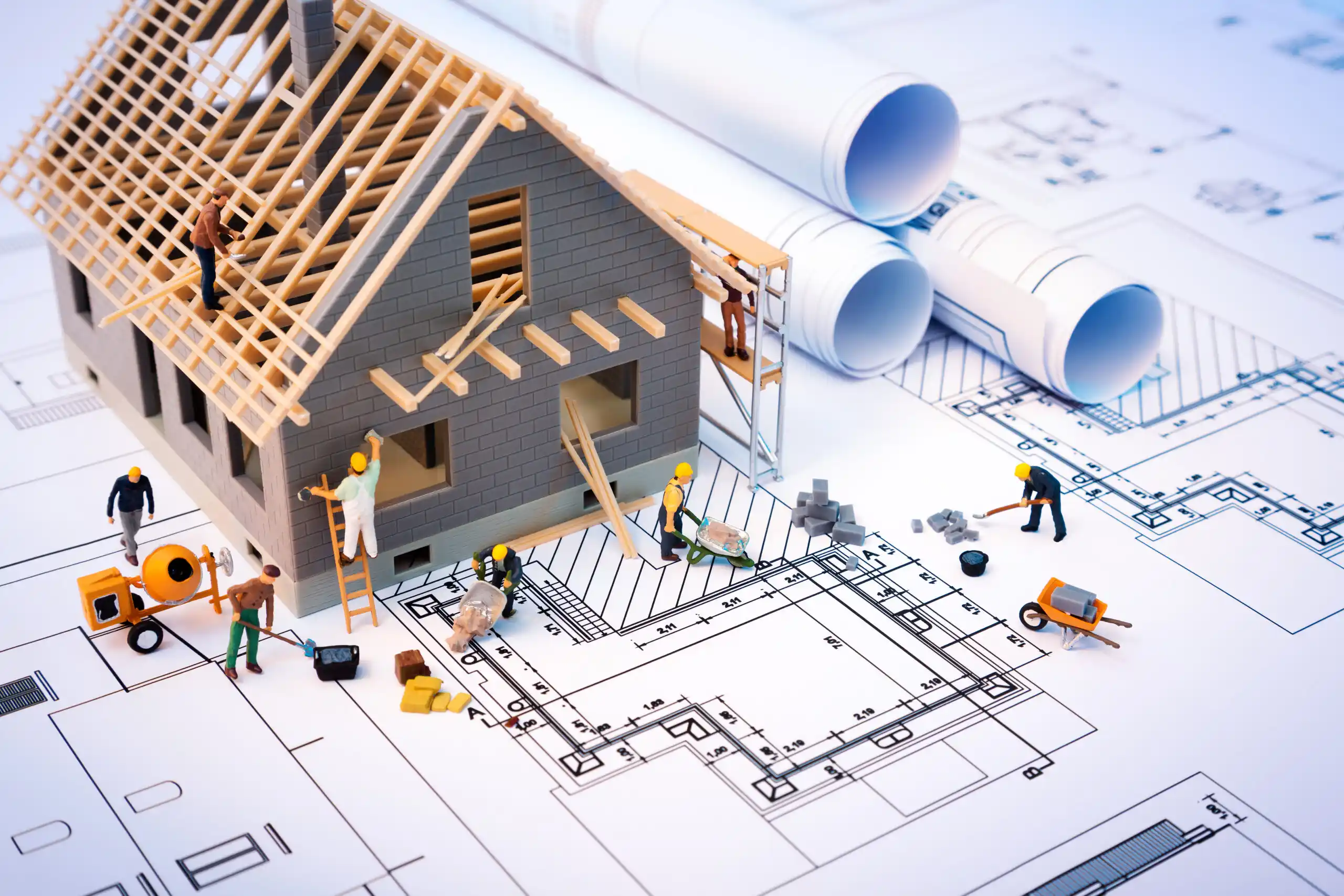 Shutterstock
Shutterstock